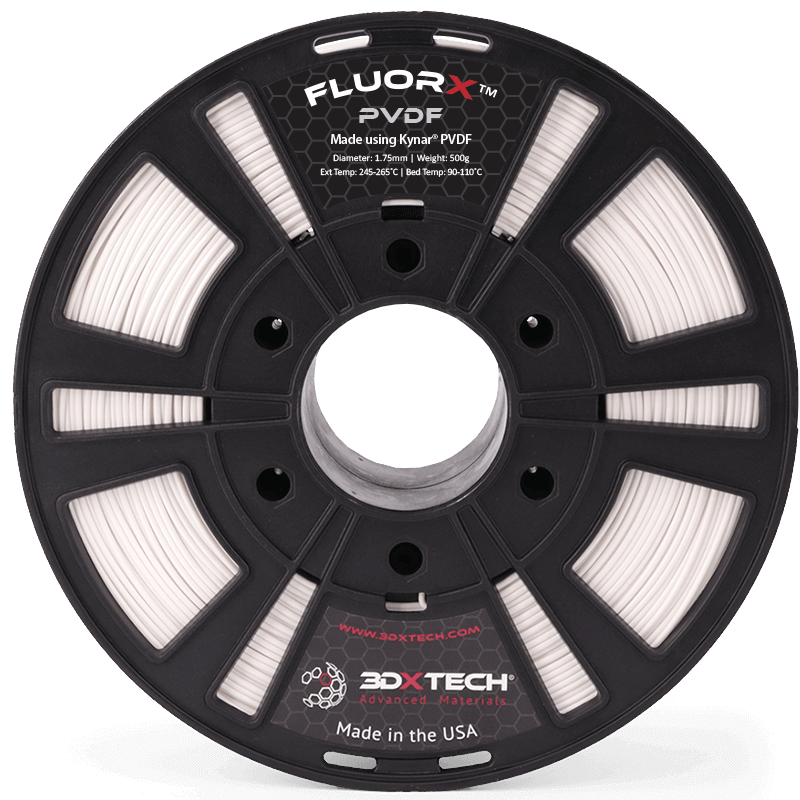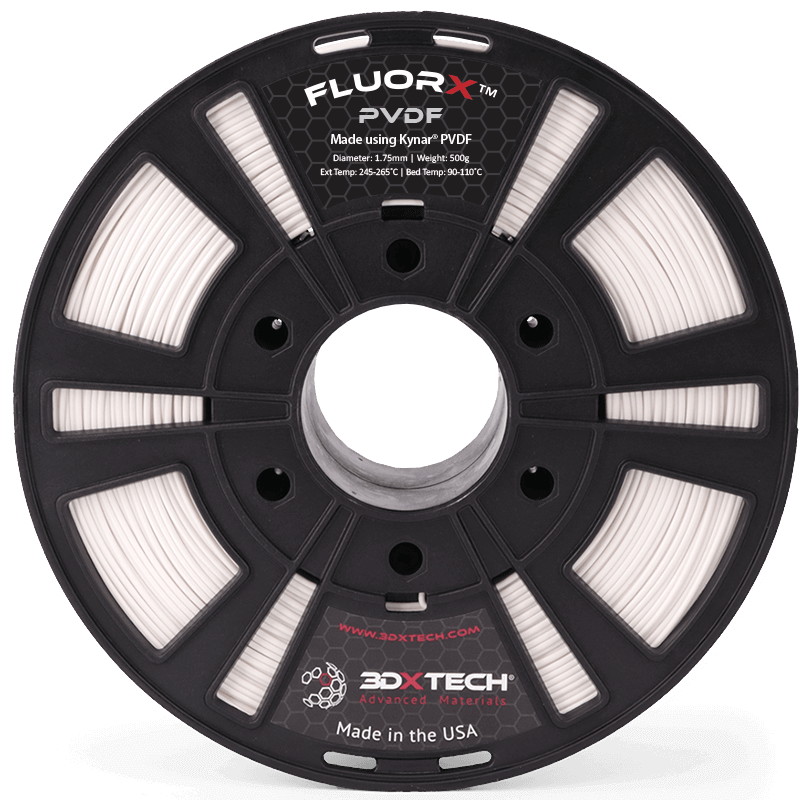FluorX PVDF
PVDF [Polyvinylidene fluoride] is a high-performance polymer which offers exceptional thermal and chemical resistances. Rated for uses up to 130C – this filament can be used in demanding applications under the most extreme conditions. PVDF is resistant to most chemicals and solvents, making it a great fit for applications which will be exposed to harsh environments.
MADE IN THE USA
We manufacture all of our filaments in our 68,000 ft² manufacturing facility (located in Grand Rapids, Michigan) using state-of-the-art equipment and processes. Our goal continues to be to make the most innovative filaments on the market – targeting difficult end-use applications.


Print Recommendations
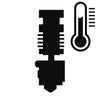
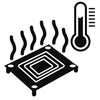
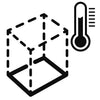



Have a Great Profile? Share It With the Community

